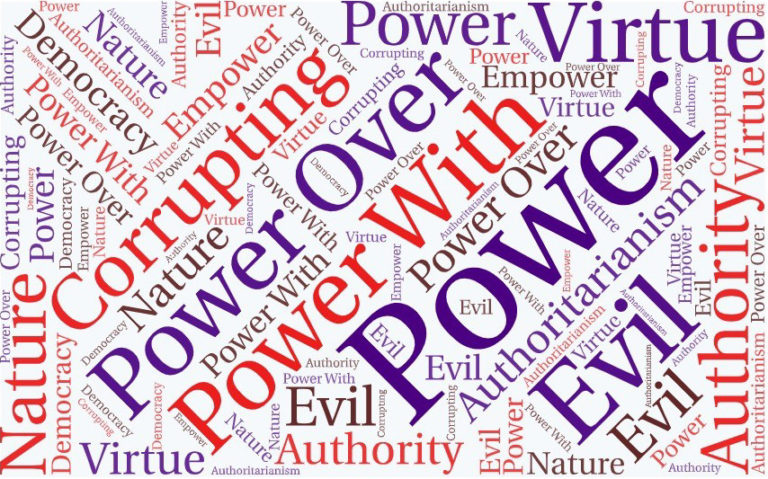
This month’s touchstone ministry theme is “power”. And I’ve been thinking about this theme this week as I review material for an upcoming session of the series on Conversations about the Emerging Church and Courageous Economy, sponsored by the Greendale Ecumenical Group. The session that I will lead on February 8 includes an video of an interview with Rev. Kelly Brown Douglas, Cantor Theologian at the National Cathedral in Washington, D.C. and Dean of Episcopal Divinity School at Union Theological School in New York City. Douglas is the author of a number of books that continue to inspire me.
One of the things that has energized my thinking about the concept of power is the way in which Rev. Douglas renders the golden rule, which is typically stated, “Do unto others as you would have them do unto you.” or in the original order, “Do not do unto others that which you do not want done unto you.” Douglas posits the following. “Imagine a world where you are withholding from nobody else that which you would not want withheld from yourself.”
In this rendering of the ancient rule, Douglas invites us to begin with a personal inventory. What is it that we have or experience that we would not wish to be withheld? And here she is not simply talking about material realities (food, water, clothing, housing, etc.). She also wants us to consider that which is non-material but no less necessary; to be affirmed in who each of us is as a human being, for instance.
Power here is the willingness to use all our resources to hold ourselves, each other, and those we elect to serve us to act and create systems of justice, equity, prosperity, compassion, and peace and to hold each other accountable when efforts fall short of this grand vision. The power of religious community is to be places that strive to live out the rule above in a way that helps people imagine, if not actually glimpse at, the possibility that it can be lived out in more and more ways in the world. To be communities of moral imagination and practice that does not let the world we live in, and serve, settle for anything less than the fullest measure of this vision.
So, one way of beginning would be to ponder the question, “What is it that I would not want withheld from me?” And in answering that question think about the ways in which you and we support (or thwart) efforts to challenge those systems that withhold from others that which we would not want withheld from ourselves.
To inspire this exercise in moral imagination and social justice, consider these words by my colleague Rev. Nate Walker.
For centuries, insiders
have been democratizing their religions.
Incremental moments of institutional reform
have led to a new era of theological enlightenment.
From out of ancient times
into the twilight of now,
these reformers have made a sacred vow:
to never mischaracterize freedom
as a zero-sum game.
True freedom is not jealous.
True freedom is not envious.
True freedom is not spiteful.
True freedom does not desire
to restrict the rights of others.
True freedom knows not a selfish thought
knows not how to threaten.
To sense true freedom is to know that
your win is my glory and that
your suffering is inextricably tied to my own.
For, the sum of all that is holy shines far beyond
the tools of our evolving democracy––
from party jingles to picket signs.
The sum of all that is holy is found
in our collective desire to know freedom
not as a political slogan,
but as a way of life.

